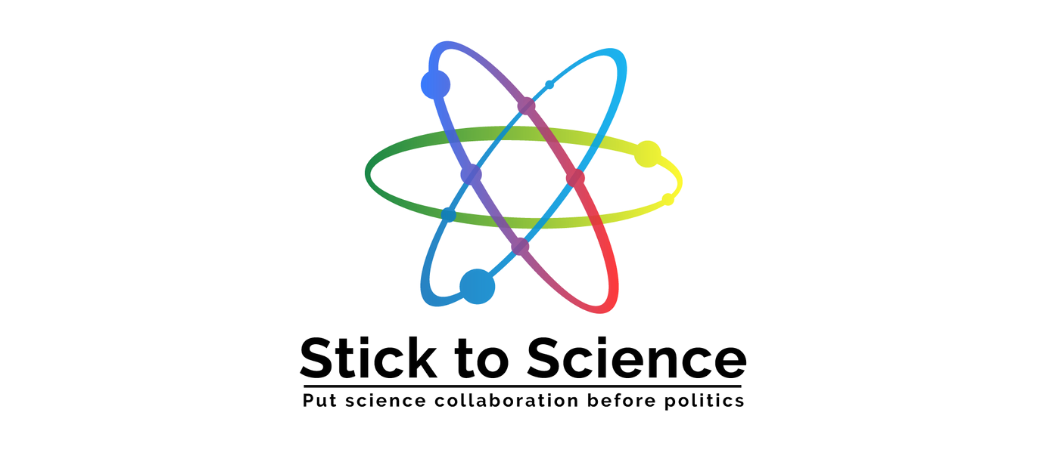New campaign seeks to break deadlock on UK and Switzerland’s participation in Horizon Europe

European Union leaders should put science before politics and allow the UK and Switzerland to fully participate in Horizon Europe, the EU’s flagship research and innovation programme. That is the message from a new campaign called Stick to Science, set up by the ETH Board, EPFL, The Royal Society, ETH Zurich, Wellcome and Universities UK.
The UK’s re-association with Horizon Europe, a seven-year €95.5 billion programme, has stalled post-Brexit and Switzerland’s potential association was put on the backburner after it stopped negotiating an institutional agreement, unrelated to scientific research. Stick to Science urges the EU to quickly finalize Horizon Europe association agreements for the UK and Switzerland, for the benefit of science and society.
More than 300 leading scientists and organizations, including a dozen Nobel Prize winners, have already pledged support for the campaign. “The response to our call has been phenomenal,” Michael Hengartner, president of the board of the Swiss Federal Institutes of Technology (ETH Board) told Science|Business’s online conference Horizon Europe: The First Assessment.
“The whole research and innovation sector is currently alarmed for the future of science in Europe as one year after the start of Horizon Europe, the full association of both the UK and Switzerland are still blocked because of political disagreements,” Hengartner said during a plenary session focused on this topic. “This situation is extremely unfortunate as advancements in research and innovation are best achieved when all actors can work together across geographical regions.”
Horizon Europe is the EU’s 9th Framework Programme, running from 2021 to 2027, which underlies common science and technology policy based on pan-European collaboration. It establishes scientific and technological objectives, criteria and priorities for selection of research activities, as well as a financial framework for €95.5 billion to support research grants.
Is Europe inflicting self-punishment?
An additional €18 billion would be added to Horizon Europe by the UK and Switzerland if they are allowed to participate. This would enable further collaboration on critical research aimed at tackling pressing global challenges, such as pandemics, climate change and food security. Stick to Science notes that both countries are academically important to Europe with top institutions and researchers.
“Preventing the association with Horizon Europe of the UK and Switzerland is not a punishment for the UK and Switzerland, it’s a punishment for all of us, it’s a punishment for Europe,” said Antoine Petit, chair and chief executive of the French National Centre for Scientific Research (CNRS). “If I dare, I could say that it’s a sadomasochistic decision.” He warned that excluding the UK and Switzerland from Horizon Europe will encourage them to collaborate with non-European countries.
Other panellists agreed that Europe is taking a big risk. “Science should not know any borders,” stressed Lina Gálvez Muñoz, Spanish member of the European Parliament and former academic.
Hengartner likened the situation to Roger Federer hypothetically not being able to compete in a tennis tournament because he’s Swiss. He noted the UK and Switzerland have for many years been involved in pan-European research infrastructures, some of which, such as the European Organization for Nuclear Research (CERN), are hosted in these two countries.
“Holes are nice in Emmental and Stilton cheese, but we can’t afford a hole in the EU research area,” joked Robert-Jan Smits, president of Eindhoven University of Technology in the Netherlands. “If this is not sorted out by the summer, it will be quite difficult to still repair it.”
Helga Nowotny, former president of the European Research Council, warned that excluding the UK and Switzerland will narrow the choice of where young researchers can go. “I would confront politicians with what they want to achieve. European technological or digital sovereignty, independence in the supply chain, etc. [rather] than just leaving science hostage to political negotiations,“ she advised. “We are between two dominant geopolitical actors, China and the U.S., and unless Europe is able to prove to the world and to its citizens that it can act as a continent – and research is the driving force behind it – [we] will fail.”
Stick to Science is advocating for pan-European scientific collaboration and inclusiveness in Horizon Europe. Signatories on stick-to-science.eu urge the EU, UK and Switzerland to rapidly finalize association agreements, so that the two countries can contribute scientifically and financially to Horizon Europe.
“Scientific collaboration, based on shared values, is our common key to building a future together and to strengthening Europe's competitiveness,” concluded Hengartner. “I call on the entire scientific community and all citizens concerned to join this action and sign the initiative at stick-to-science.eu.”





 A unique international forum for public research organisations and companies to connect their external engagement with strategic interests around their R&D system.
A unique international forum for public research organisations and companies to connect their external engagement with strategic interests around their R&D system.